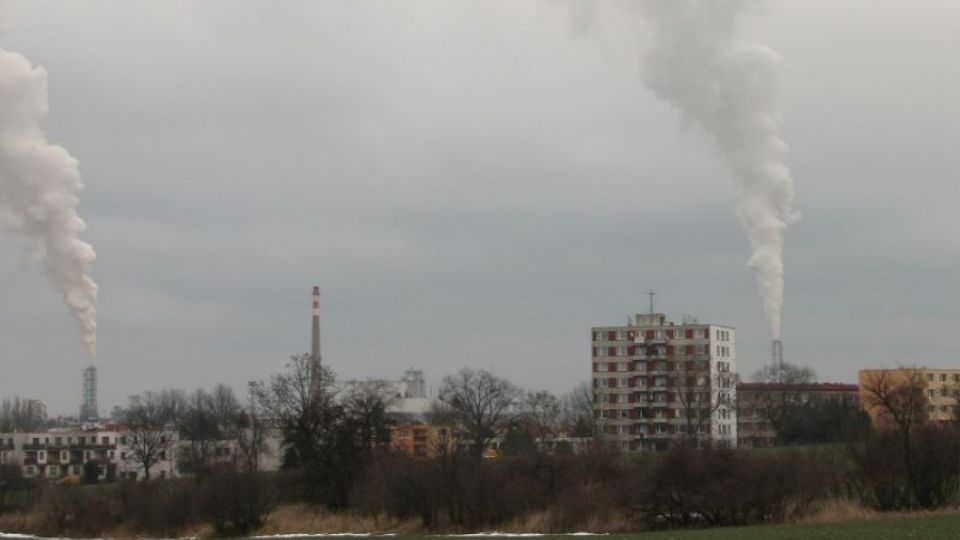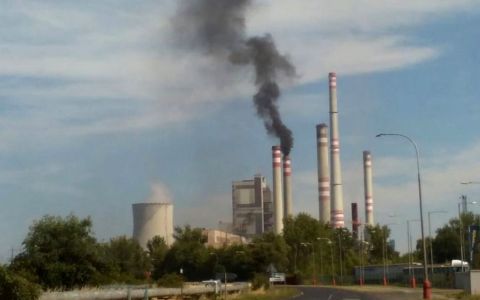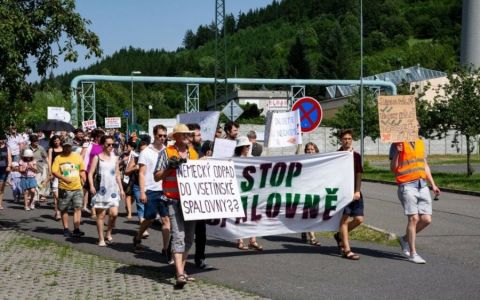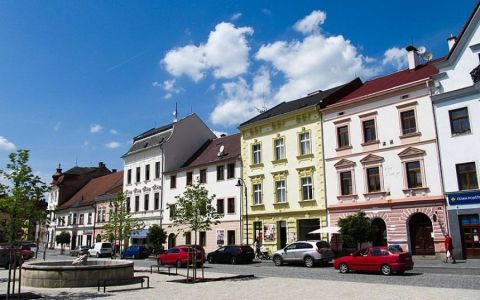Kronospan, the multinational company, bought a factory on Jihlava outskirts in 1994. When it started a new line for the production of glued chipboard OSBs ten years later, the problems appeared. Clouds of dust and chemical mixtures with the high concentration of cancerous formaldehyde started to roll in out of the chimneys. Kronospan became the biggest polluter of the environment in the Vysočina Region and hundreds of people started to have health problems. When the company announced its plans for extending the production in 2006, people decided to fight against the dust and the contaminated air.
In Jihlava, which is the capital city of the Vysočina Region with 50,000 inhabitants, the woodworking industry has a long tradition. In 1883, there was a saw-mill in a place where the today’s Kronospan is located. The production of the chipboard boards began in 1957. The surrounding dense forests supplied enough wood and the saw-mills produced considerable amount of edgings and leftovers, which were not usable for the furniture production or in the civil engineering. In 1978 the biggest line for the chipboard boards production in the then Czechoslovakia was commissioned in Jihlava.
Kronospan is one of the biggest woodworking concerns in the world. Kronospan bought the factory of the bankrupt company Dřevostavba in 1994 and re-established the production of chipboard boards, which are used in the civil engineering, furniture production or windowsill production. In 2005, Kronospan started a new line of construction boards, so-called OSB, which are produced by gluing and pressing of big wood chips.
The first block of flats is located 150 meters from the fence of the factory. The historical centre of Jihlava is only 3 kilometres far away. Jihlava is the centre of the region, which bets on tourism, forestry and agriculture, and where the degree of the industrial pollution is significantly lower than in other regions in the Czech Republic.
Tearing eyes full of dust
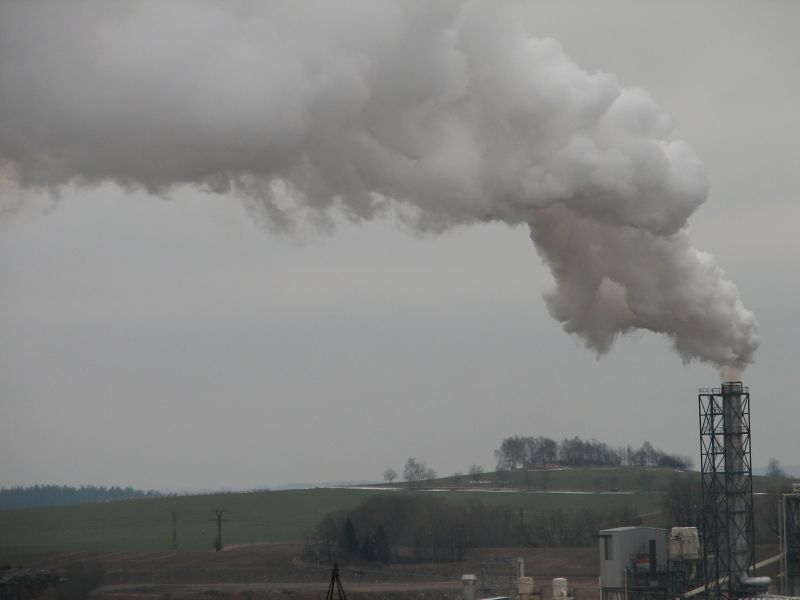 Photo:Arnika/archive
Photo:Arnika/archive
The start of the line for the OSB production was noticed by Jihlava citizens immediately. The citizens started to suffer from repeated conjunctivitis and breathing problems. Due to the smell and dustiness it was impossible to open the windows at home or dry washing outside in some days. The citizens pointed out the smell, noise and dust to the Czech Environmental Inspectorate and Regional Public Health Authority repeatedly. But there was no improvement.
At the end of 2005 the data of the Integrated Pollution Register were published for the first time. The data concerning Kronospan shocked the public. It turned out that 474 tons of airborne dust and 22 tons of toxic formaldehyde came out of the chimneys of the factory annually. As far as formaldehyde is concerned, Kronospan was the biggest polluter in the Czech Republic and it produced almost half of the total emissions of the point-sources in the state area. The complaints of the citizens were then more than justified.
According to the World Health Organization (WHO), formaldehyde is a cancerous substance of the first category. It irritates eyes and the mucosa of the airways. It causes health problems particularly to the cardiacs, allergic people and small children. But it turned out that in the Czech law there is no pollution limit for formaldehyde set and thus, companies do not have to monitor its emissions into the air.
The second threat to Jihlava citizens was represented by fine airborne dust with particles smaller than 10 micrometers (indicated as PM10). These small particles of dust bond with many toxic substances, they get deep into the people’s lungs while breathing and that leads to the serious allergies, respiratory system and heart diseases and they even cause human genetic apparatus damage.
To inform the public about toxic substances, Arnika uses the Integrated Pollution Register, which was established by law in 2002. All companies under the law imposition have to report particular data about those substances they pollute the water, air and soil with, or those ending in waste, to the register. The register is then published on the Internet as a publicly accessible database. It monitors 93 polluting substances. If any company did not report its emissions to the register, heavy fines could follow.
Who is asserted by the officers?
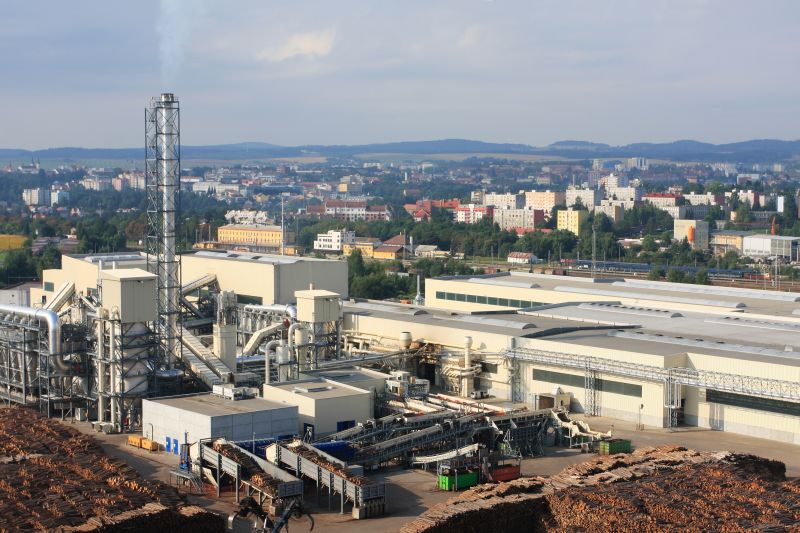 Photo:Jan Losenický/Arnika
Photo:Jan Losenický/Arnika
At the beginning of 2006, a new law which made the limit for the dust emissions from industry to the air more restrictive came into force. Nevertheless, the Regional Authority along with Kronospan elaborated a document called misleadingly “The plan of reducing the emissions”, which allows the factory to exceed the stricter limit with impunity for another two years. The procedure of the officers discontented the public. The petition, which called for the cancellation of unjustified exceptions and consequent fulfilment of the law by the Kronospan company, was signed by more than 3000 people.
In the same year, Jihlava was outraged at the announcement that the factory planned to expand the production. Although Kronospan employs more than 700 people and it considerably contributes for the city budget, the citizens felt threatened by its more and more smoking chimneys and the management’s lack of interest.
Again in the same year, Kronospan published the compulsory documentation concerning the extension of the production and the Regional Authority started the process of the Environment Impact Assessment (EIA). Hundreds of citizens and four citizen organisations joined actively the debate. Arnika did a large parameters research of similar plants in other countries and it found out that the Czech factory producing the chipboards belonged to the dirtiest in Europe. People then asked Kronospan to use the same technologies as in the more progressive countries.
In the spring 2007, the Ministry of the Environment rendered a decision, which agreed with the extension of the production. It regulated 35 terms to limit the impact of Kronospan on the environment. It also ordered the regular monitoring of pollutants, four times per year. It came out that because of the error in the legislation the limits for formaldehyde emissions were set wrong. The law of the Integrated Pollution Prevention and Control (IPPC) does not apply to the wood-working plants, thus it is impossible to impose stricter conditions for the company.
Building under the rules
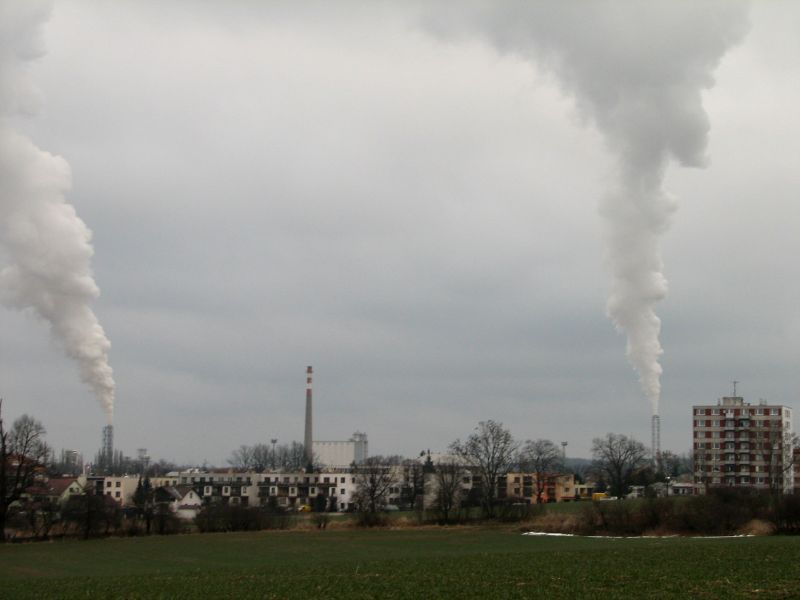 Photo:Arnika/archive
Photo:Arnika/archive
In the summer of 2007, the inspection of the Czech Environmental Inspectorate found that one of the presses did not meet the technological standards. The exhaust from the hall up to the roof was not fully functional and the labourers were ventilating the fumes from the operation through opened gate. This caused the increased concentration of formaldehyde in the near housing area. The inspectorate fined the concern, but the problems continued. Kronospan got fined two more times for the repeated leaks of the soft chips from the unprotected stores and once for the operating of the line without the permission of the air protection authority.
The building authority in Jihlava, which conducted the proceedings on the extension of the operation, did not add the conditions set by the Ministry of the Environment in the EIA process to the building permit. Nevertheless, the citizen organisations can participate in the building proceedings and point out the inadequacies. It turned out to be crucial.
The citizen organisations in Jihlava supported the supplementing of the Ministry of the Environment conditions into the building permit against the will of the building authority. And they were successful. Furthermore, they enforced the implementation of the complex monitoring of the pollutants in the plant surroundings, which was in progress continually for half a year. The city then gained a detailed overview of the air quality, which is henceforth used in proceedings with other polluters, so the hygienically tolerable conditions of the air in the region are adhered to.
Only by the participating of the citizen organisations in the EIA process and in the administrative proceedings it was possible to control the parameters of the factory operation and to insist on their authority-side enforcement, which would otherwise proceed inconsequently. In the following proceedings with the Kronospan management the citizens managed to get an undertaking that the company would invest into other ecological measures to increase the standards above those given by the law.
Factory amended
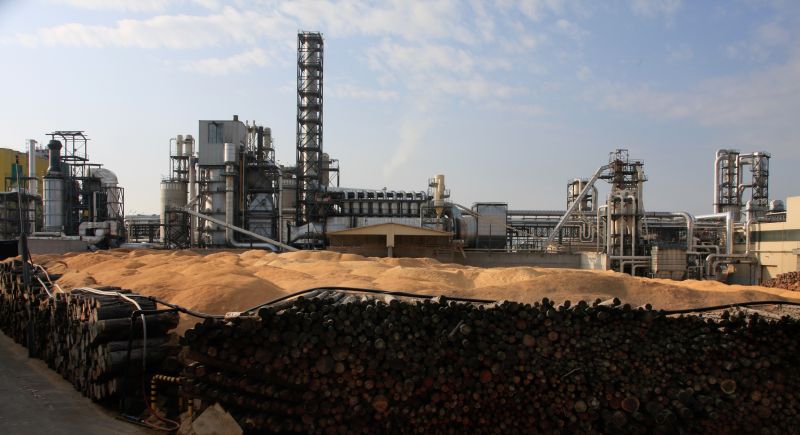 Photo:Jan Losenický/Arnika
Photo:Jan Losenický/Arnika
Kronospan introduced a new continuous press for the OSB production in the second half of 2008. According to the earlier calculations, the total annual emission of formaldehyde should have decreased from 16, 5 tons to one third. Formaldehyde extracted from the press should have gone through the filtration equipment installed in the previous year. The company management also promised that Kronospan would gradually switch to another production procedure and would start to use a binding material without formaldehyde for the gluing of OSBs. That would be great news not only for Jihlava citizens, but also for the consumers. Cancerous formaldehyde used in the production of construction OSBs can be given off into the interior of the building.
Despite the undertakings of the management, according to the Integrated Pollution Register, Kronospan plants occupied the first and the second place in the chart of the cancerous substance producers in 2009. It turned out that the leaks of the dangerous substances increased in comparison with the previous year and Kronospan remains the biggest source of formaldehyde in the Czech Republic.
New proceedings among the factory management, the citizen organisations and the authorities started, whereas Kronospan was often the target of the critical interest of media. In 2010, the factory management fulfilled its promises and invested into the required technologies. With this came the significant reduction of formaldehyde emissions in both plants and Jihlava citizens heaved a sigh of relief after many years.
The Integrated Pollution Register helped the citizens, which revealed concrete leaks of the dangerous substances from the factory. Due to the participating in the building proceeding, the citizens enforced important conditions resulting from the EIA stance. Authorities were too lax and they would not act against the company. Due to the activity of the citizens, Jihlava gained a detailed overview of the air condition, which is a model for other cities.
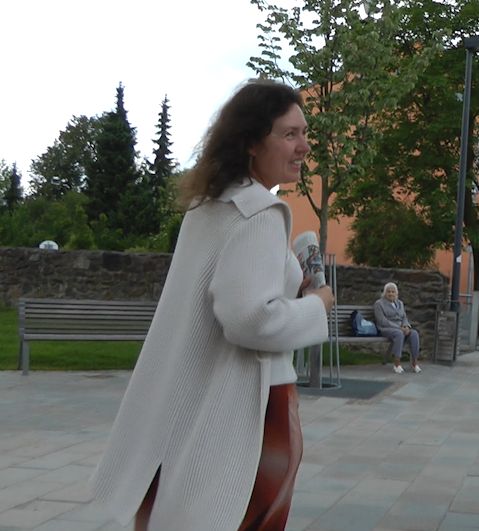
Photo: Arnika/archive
“Despite certain improvements, we are still not satisfied, from September to April in particular. In the inversion season, the emissions and the typical smell from Kronospan bother the citizens in the centre of the city and its neighbouring areas. The convoys of trucks, which form mainly between 13 and 14 o’clock, annoy the citizens living near the industrial area. Regional officers responsible for the issue of the environment should proceed more fiercely and demand that the second line of the Kronospan company would be also provided with the filtration equipment.”
Bohdana Kachlíková, high school teacher



